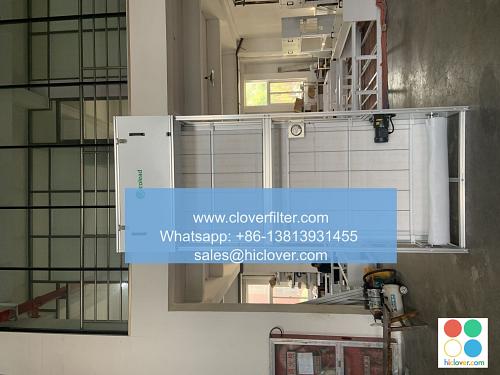Maintenance and Troubleshooting of Automatic Roll Air Filters

Automatic roll air filters are a crucial component in various industries, including heating, ventilation, and air conditioning (HVAC), pharmaceuticals, food processing, and cleanrooms. These filters play a vital role in maintaining indoor air quality (IAQ) and preventing airborne contamination. In this article, we will discuss the importance of maintenance and troubleshooting of automatic roll air filters, highlighting various application areas and key considerations.
Importance of Maintenance
Regular maintenance of automatic roll air filters is essential to ensure optimal performance, extended lifespan, and energy efficiency. Neglecting maintenance can lead to premature failure, reduced airflow, and increased energy consumption. Some key maintenance tasks include:
* Filter replacement: Replacing the filter media at regular intervals to prevent dust buildup and filter saturation.
* Cleaning and inspection: Regularly cleaning and inspecting the filter housing, blowpipes, and guide rolls to prevent blockages and wear and tear.
* Lubrication: Lubricating moving parts, such as rollers and gearboxes, to ensure smooth operation and prevent wear and tear.
Troubleshooting Common Issues
Despite regular maintenance, automatic roll air filters can still experience issues. Some common problems and their solutions include:
* Reduced airflow: Check for blockages in the filter housing or blowpipes, and ensure that the filter media is not saturated or clogged.
* Increased energy consumption: Check the filter pressure drop and ensure that the filter media is not clogged or saturated.
* Filter failure: Check for manufacturing defects, improper installation, or inadequate maintenance.
Application Areas and Key Considerations
Automatic roll air filters are used in various industries, each with its unique requirements and challenges. Some key application areas and considerations include:
* HVAC systems: Ensure that the filter is designed to handle the airflow rates and pressure drops required by the system.
* Pharmaceutical and food processing industries: Ensure that the filter meets the required standards for cleanliness and sanitation, such as ISO 14644-1 and HACCP.
* Cleanrooms: Ensure that the filter is designed to maintain the required level of cleanliness, such as ISO 14644-1 and FS 209E.
Conclusion
In conclusion, maintenance and troubleshooting of automatic roll air filters are crucial to ensure optimal performance, extended lifespan, and energy efficiency. By understanding the importance of maintenance and troubleshooting, and considering the unique requirements and challenges of various application areas, facilities can ensure that their automatic roll air filters operate at peak performance, providing a healthy and safe indoor environment for occupants. Regular maintenance and troubleshooting can also help prevent premature failure, reduced airflow, and increased energy consumption, ultimately saving time and money.

